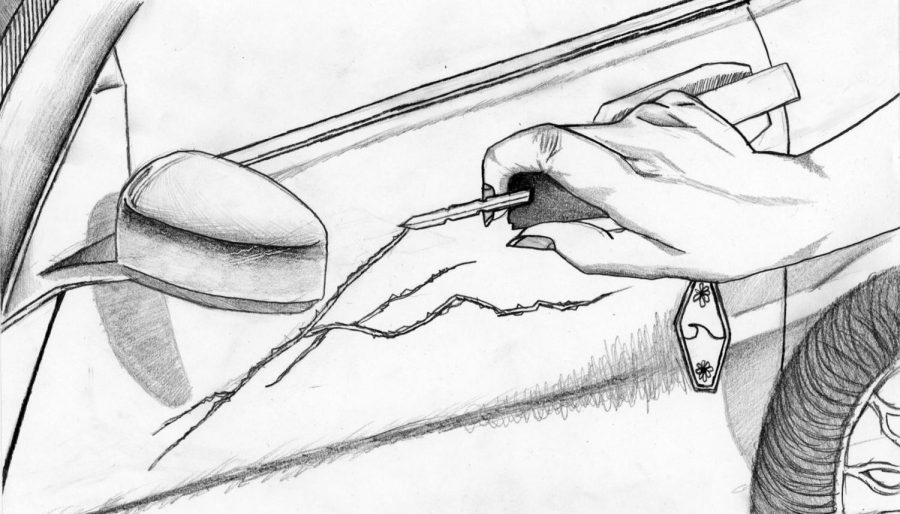Deeper than surface level
A key is used to deface a car. After a normal day of school, the last thing Carly expected to see on her own car was a swastika carved into the paint.
It has been over a year since the day I walked out to my car in the Glenbrook North parking lot to find that a swastika had been keyed into the driver’s side back door. I was broken inside.
The offense occurred hours before the start of Yom Kippur, the holy Jewish Day of Atonement.
Had I been Jewish, I might have asked my rabbi for guidance. Maybe the rabbi would have told me to forgive the person who had been following skewed ideas.
But I do not forgive that easily.
A year later, I wish I could move on. But when I think about my Jewish friends, relatives and neighbors, I am reminded of the anger I have towards those who would even think about using a swastika, a symbol associated with such a horrible background.
I do not believe this was a random act or a joke. Actions like this have deliberate motives. Bigots are not formed overnight. They are taught their prejudices and are encouraged by people who turn a blind eye to hate-filled remarks.
We, as high school students, should not have difficulty understanding the difference between what is just and unjust. If one of your peers is racist, homophobic, anti-Semitic, sexist or supports any other kind of hatred based on differences, it is your duty to call them out on it. By ignoring the issues, you are indirectly supporting their rhetoric.
We need to do better, GBN. Our community is not safe from xenophobia. Until I can tell my friends and family that the students at my school are tolerant and kind to everyone, I will be ashamed to be a Spartan.


